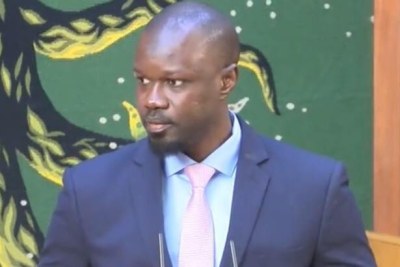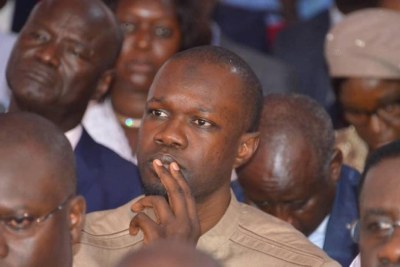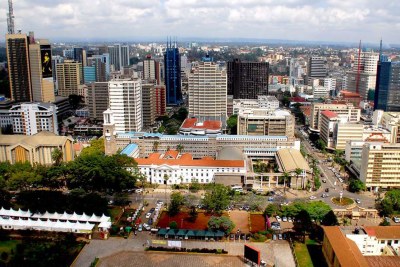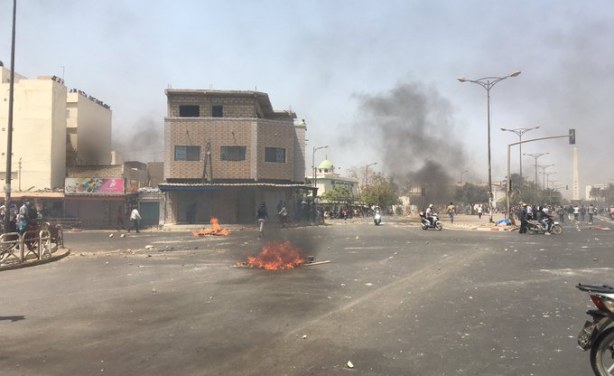-
Senegal: Chronicles of Youth Anger and Protests in Senegal
African Arguments, 5 May 2021
Mamadou Dramé with contributions from Alcinda Honwana. Translated by Stephanie Kitchen.* Read more »
-
Senegal: Trial Judge of Ousmane Sonko Passes Away
The Point, 12 April 2021
Senegalese judge, Samba Sall, who was assigned to try opposition leader Ousman Sonko in his alleged rape case against Ajie Sarr died on Thursday in Dakar Hospital Principal after a… Read more »
-
Gambia: Ousmane Sonko's Accuser Adji Sarr Speaks
The Point, 19 March 2021
The woman who accused Senegalese opposition leader of rape has spoken with fresh allegations. Read more »
-
Gambia: Sonko Calls for More Protests Amid Release
The Point, 10 March 2021
Senegal opposition leader Ousmane Sonko called on Monday for more protests against President Macky Sall after being indicted and released on bail over a rape charge that has… Read more »
Protests in Senegal a Sign of Deep-Rooted Frustrations
In February 2021, a 20-year-old Senegalese woman accused Ousmane Sonko, a longstanding national member of parliament of rape - formally laying a charge - and he was arrested. Then 46-year-old Ousmane Sonko, the youngest candidate to run in the 2019 presidential election that ended with him in third place, accused President Macky Sall, the Interior Minister Antoine Felix Diome, and the Prosecutor of the Republic, Bassirou Gueye, of plotting to remove him. The case plunged the country into chaos with three days of social unrest that resulted in 12 deaths and over 600 people injured, mostly young people. Ousmane Sonko is the popular leader of the political party Patriotes du Sénégal pour le Travail, l'Éthique et la Fraternité (PASTEF). PASTEF is part of the Mouvement de Défense de la Démocratie (M2D) a broader coalition of politicians and activists that is opposed to President Macky Sall's administration. And after M2D calls for resistance and defence, young people from all regions and districts took to the streets to protest against Sonko's arrest. What started as an alleged criminal case was quickly transformed into a major political issue with strong socio-economic, cultural and moral ramifications, writes Mamadou Drame for African Arguments.
InFocus
-
Senegalese authorities on Monday charged opposition leader Ousmane Sonko with rape and then freed him from detention pending an investigation. His arrest last week sparked deadly ... Read more »
-
In a television interview, a woman accusing opposition leader Ousmane Sonko of rape, said that the case must proceed in court. The news of Sonko's arrest on March 3, 2021, led to ... Read more »
-
Nairobi Governor Mike Sonko's refusal to sign the county budget may just see him face impeachment, according to a group of ward representatives. Sonko has been at loggerheads with ... Read more »





